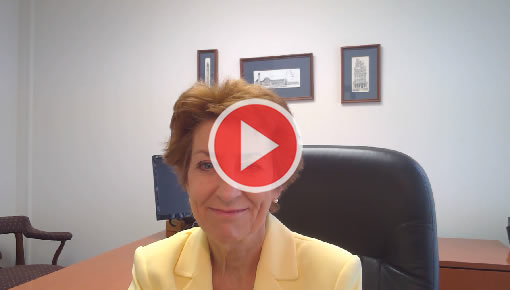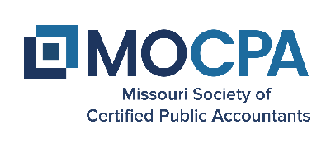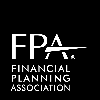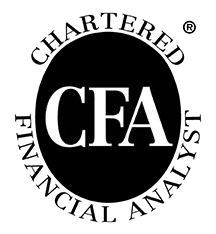Frequently Asked Questions
Start building your financial security. Let us help you make smart financial decisions.
Answers
Frequently Asked Questions
Want a peek before contacting us? Comparing what you’d get with this advisor to another? We try to make this FAQ as helpful for you as possible so you can find the information you’re looking for.
If you don’t find an item and think it should be here, let us know at [email protected].
Start building your financial security. Let us help you make smart financial decisions.
What do you do for me?
Will you do an investment review of what I’ve got?
Yes, reviewing where you have your money invested now is the first step. That means checking the quality and performance of those holdings using research. It also means assessing how much you have invested in lower-risk assets versus how much you have in higher-risk assets, and comparing that to what you say you’re comfortable with. It means checking into how many fees and expenses you’re paying and if less-expensive alternatives are available. It means reviewing the reports you receive now versus what you need to oversee your investments. An investment review also incorporates an investment proposal to upgrade the quality, risk, and performance of your investments, based on your financial situation and comfort level, while providing adequate reporting so you can see what you have and how it’s doing.
Will you see if I can do better on my taxes?
Yes, clients provide their tax returns to us every year. That’s important information when giving advice on your financial planning and investments. We might recommend that you sell an investment over multiple tax years if you have a very high income inorder to keep your tax rate low, as long as the investment is expected to do fairly well. Or, it may make sense to give an investment to an adult child so they can sell it at their 0% capital gains tax rate, rather than your 15% or 20% rate. You may not be using a health savings account but could; your tax return shows part of that. You may no longer be deducting some expenses which you still could, given the new tax law; your return can tell us that.
Can I retire at age 62 with what’s in my 401k and brokerage accounts? Do I have to increase how much I’m saving between now and my age 62?
Almost everybody asks these questions. A detailed retirement projection helps us analyze your situation, and lay out your alternatives. You might be willing to work part-time after 62, if you can “mostly” retire then. Or you might need to work until age 70 unless you save more – best to know that now. You may have fully-funded your retirement, and more options, such as a second home or a 2-month winter vacation each year, is a possibility. Once you’re retired, it’s crucial to know how much you can spend each year without running out of money. Can you move to that luxurious retirement community? Can you make significant gifts to your children earlier? It’s important to crunch the numbers and know where you stand.
Yeah! I’ve retired. How much can I withdraw each year from my savings? I don’t want to run out of money, but I want to enjoy life. How do I know which accounts to use up first – my 401k, my annuity, or my IRA?
You’ll want to prioritize which accounts you tap first, in order to minimize taxes and maximize your investment growth. The withdrawals analysis reports you get set a guideline on the maximum amount you should withdraw in any year. Your estate plans also impact this decision to avoid leaving heirs assets that may be heavily taxed. No one wants to chance running out of money but you don’t want to beggar your lifestyle either. Arm yourself with sound information so you can make smart financial decisions.
We haven’t really organized our assets yet so the children know what we have and what to do if something happens. We’ve gone to an attorney, but that was years ago.
We’ve given presentations on setting up an estate plan yourself, when you have a simple situation, and presentations on working with complicated estate plans, getting assets titled and beneficiaried correctly in accordance with your legal documents and attorney. We work on your estate planning schedule to organize everything you own, how it’s titled, who gets what, and more. Based on the size of your estate, we’ll discuss different alternatives you may want to pursue. We speak with your attorney on complicated points if needed. We’ve gone with clients to meet with their attorney when a spouse dies. When clients are executors, we’ve gone through the steps needed for retitling and more, which all helps to ensure that the precious time they spend with their attorney is most productive. You might consider asking your adult children to accompany you to one or more of your meetings with us. You can set the agenda to cover topics you feel should be addressed, and you can restrict us so we don’t talk about sensitive financial issues you’d still prefer to keep private. But you and the entire family might benefit from having your children informed on a basic high level about your finances, so they know what to expect some day about their future responsibilities and benefits.
My adult children could use some help! They really don’t have much built up yet but they have real questions like everyone else. Can they get help from you?
Yes. We offer an hour’s consultation for your adult children, at no charge, if you’ve been a repeat client. Please know that their information in their meeting is kept confidential, as is yours. Some clients choose to accompany their adult children to these meetings; some do not. If your child has a quick question some other time, just have them contact us.
I often have questions when a financial problem or choice comes up which I don’t know much about. Can I just contact you for that?
Yes, when you hire Weaver Financial, we are your financial advisor on call. Please email or phone as financial issues arise. Some answers are quick and easy; some require analysis. If the issue is outside our normal scope – a rare occurrence – you’ll get an estimate upfront if there will be an extra charge.
Interviewing a financial advisor
Why should I care if an advisor follows the fiduciary standard, versus Regulation BI (best interest) or the suitability standard in your industry?

It matters. The fiduciary standard is the highest bar, offering you the best protection. I’m required to adhere to that because of my membership in NAPFA and for my CFP® designation. Advice can be too slick. An adviser can find two investments, say Investment A and Investment B, which are both appropriate for your financial situation. They can then recommend that you purchase the one which gives them the higher commission. That satisfies the suitability standard but not the fiduciary standard. That might satisfy the best interest regulation. BUT, if we tell you we’re following the fiduciary standard, we have to place ourselves on your side of the fence. So the investment with the lower commission is better, all other things being equal.
You say your firm is “fee-only, no commission”. What does that mean?

It means that nothing we recommend you do, buy, or sell, is going to benefit us with a commission. Only clients pay Weaver Financial, no one else. No mutual fund family, no insurance company, no brokerage pays us, just our clients. From your side of the fence, you can know that the recommendations you get here are not biased by a commission going to Weaver Financial’s pockets. No commissions when advising you on insurance. No commissions when advising you on investments. There are situations where paying commissions makes sense, for some advisors, for some areas of their practice; commissions are not inherently bad. You just want to be fully aware of what’s going on.
What do you charge if you’re my advisor?
We provide comprehensive financial planning and investment management. The industry average for fees based on assets under management is slightly over 1%, accompanied with a minimum amount of investments, per Investopedia.com, RIA in a Box.com, NerdWallet, and other sources. Sometimes that fee includes comprehensive financial planning advice; sometimes not. Weaver Financial’s fee is $9,000 plus 0.15% of the portfolio exceeding $900,000, payable after the quarter ends. Comprehensive financial planning advice is always included. When compared to industry averages solely on price, the fee is a good deal for larger portfolios and broader financial situations; it may be too expensive for smaller portfolios and simpler financial situations. Fees are negotiable in rare situations; some earlier clients may have other arrangements.
What expenses do I pay if you make recommendations for my investments?
Weaver Financial recommends a well-balanced diversified portfolio, using mutual funds and exchange-traded funds (ETFs), covering various asset classes. Those funds and ETFs charge an annual fee to cover their own expenses (manager, analysts, mailing prospectuses, etc.). You pay those indirectly. Expenses matter a great deal, so having access to low-cost funds, through diligent research and using institutional classes, is a big advantage.
You also pay fees charged by your custodian. Those usually are transaction fees, perhaps a wire fee, ordering checks, etc. If you decide to use Charles Schwab & Co. Inc., they will charge a $25/$35 transaction fee on some funds you buy or sell. Usually transaction fees are not significant. A full list of fees is available in the ADV Part II, which you should get whenever you interview any advisor.
If you recommend an investment or some kind of insurance, do you get a commission?
No. Weaver Financial is fee-only. If we recommend you purchase some insurance, we can suggest 2-3 places to get quotes, we can help you get those quotes, we can help you evaluate those quotes. But we don’t sell you insurance, nor do we collect any commissions, nor do we get any kickbacks or “free trips” from those insurers.
When we work with your investment portfolio, we research no-load funds and ETFs without sales commissions. Any trailers or 12b1 fees are not collected. Only our clients give us money.
Can I do this myself? I really like investments and finances, and love spending my time on that.
Absolutely you can do it yourself. You may not do it as well as someone professionally educated to perform this work, and you have to be willing to follow your own recommendations, perhaps with a large sum of money. But many laymen have a keen aptitude for this work. It takes time, knowing where to get solid research and information, and having the tools available to get the work done well. Like math?
Working with a small financial planning practice
How can you compete against a larger practice?
We have lots of experience (link to About Us), working with many types of clients with various financial situations. Weaver Financial is a boutique practice, serving only a limited number of clients, so you get more one-on-one attention from an experienced planner, than you typically get at larger firms. We office with another financial planning firm, which serves as a backup resource for clients, and more importantly as a sounding board for us to share ideas and insights. We’ve long been a member of NAPFA, which is a terrific organization of planners. One of their best features are the community resources, the mix groups and forums where we can tap the brains of other planners. Lastly, I’m an active member of the Missouri Society of CPAs and am grateful to know several CPAs who are solid resources for all things tax.
How do you stay up with technology?
We love tech! Client meetings are held in the office, via video, or via conference call phone line. Video chats are so easy now. Most financial planning software is now cloud-based, accessible from anywhere with proper security.
What are your office arrangements?
Weaver Financial offices with another financial planning firm, which serves as a backup resource for those dropping off documents or who have a basic question. You can email, call 913-871-6151 or leave a phone message. Regular office hours for me are 9am – 2pm, although you can usually reach me earlier and later than the posted hours. The office is available for you earlier and later as well if you need to drop something off; you can call Lisa, the support specialist, at (913) 948-9694 to arrange a time. There is a locked mail dropbox for evening dropoffs.
Please remember we serve only a limited number of clients so you should get an email/call returned same day, or next day at the latest.
Clients are encouraged to call Schwab Alliance 800-515-2157 for assistance on their own accounts, if they’ve chosen to keep those at Schwab Institutional. The Schwab Alliance team, a specialized department working strictly with these clients, is open Mon-Fri 7:30am – 6:00pm CST. If you need a check from your account or have a question, they’ll help.
You’re an older planner. How long do you plan to work?
Hey! Careful now! 🙂 Yes, 50% of all financial planners are older than 51. 38% plan to retire in 10 years, according to Cerulli Associates in a 2017 survey. I hope to work another 10 years (from 2019) and fully enjoy the work, hence having a boutique practice and limiting the number of clients. We intend to give clients a 12-month notice when they need to find a new advisor.
Each year SEC regulations require planners to have a documented succession plan. We have over 6 alternative financial planners listed, and distribute that to clients each year.
We’ll transfer your financial planning and investment information and files (not just your accounts) to the advisor you choose. Why? Because that’s what’s in your best interest per the fiduciary standard. That’s what every client would really want when changing advisors, if they could get it. Based on the statistics above, there will be a lot of clients moving to new advisors.
I’ve browsed your website and your FAQs. I’d like to get more information and possibly interview you. What’s next?
You can email questions at [email protected]. We’ll do our best to answer those in 1-2 days. Or you can call (913) 871-6151. We’ll provide more information on our services and fees. You decide if you’re still interested. If you are, then we’ll set an appointment for you to interview Weaver Financial!
At that initial meeting, we want to know what you want in an advisor and what you want done.
We’ll cover what we do in detail, what services you can expect, along with a rough estimate on fees. We’ll answer your questions, and review any financial documents you’ve brought along.
We want to provide whatever information you need to make a good decision on whether to hire Weaver Financial.
Start building your financial security. Let us help you make smart financial decisions.
Check Us Out
For Quarterly Newsletter
Contact
Weaver Financial
Office: (913) 871-6151
Sandi Weaver, Weaver Financial
5410 W. 61st Place, Suite 100
Mission, KS 66205
(Kansas City metro area)











